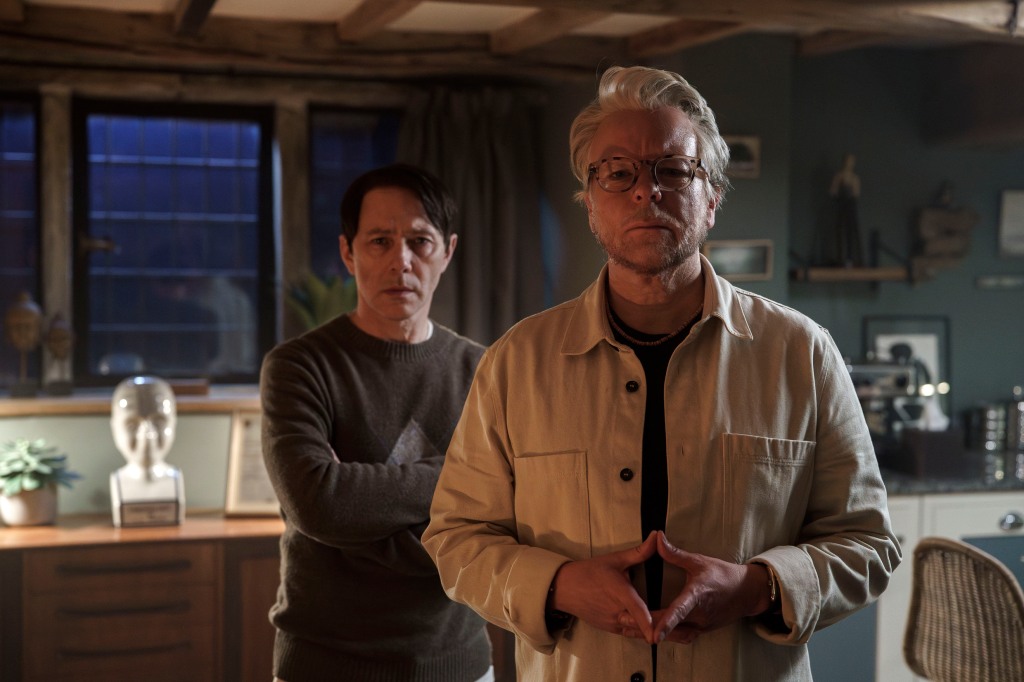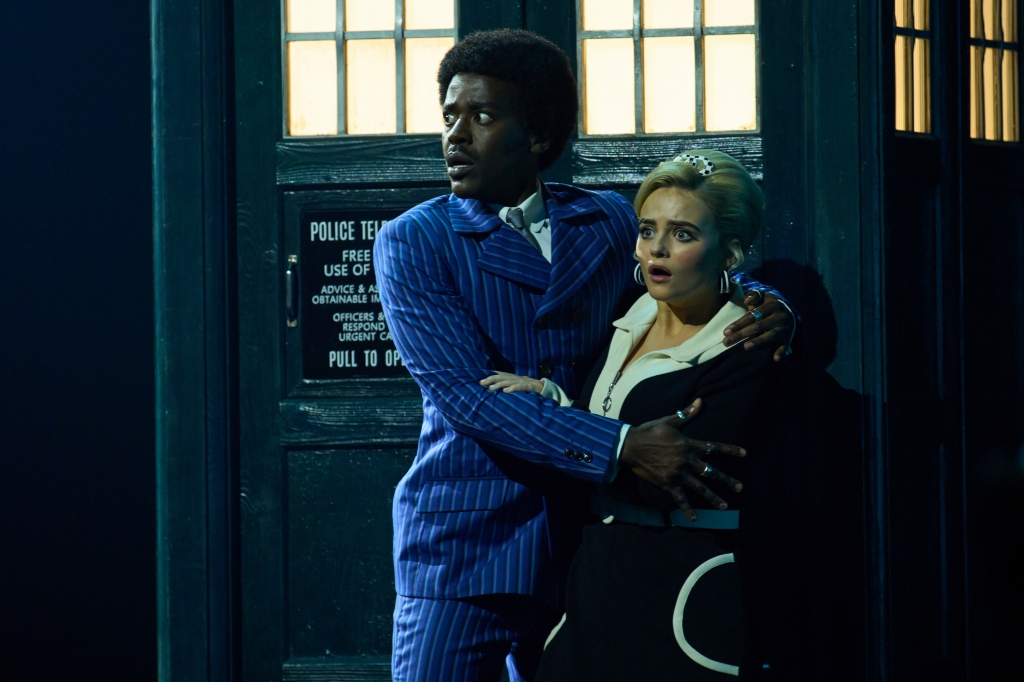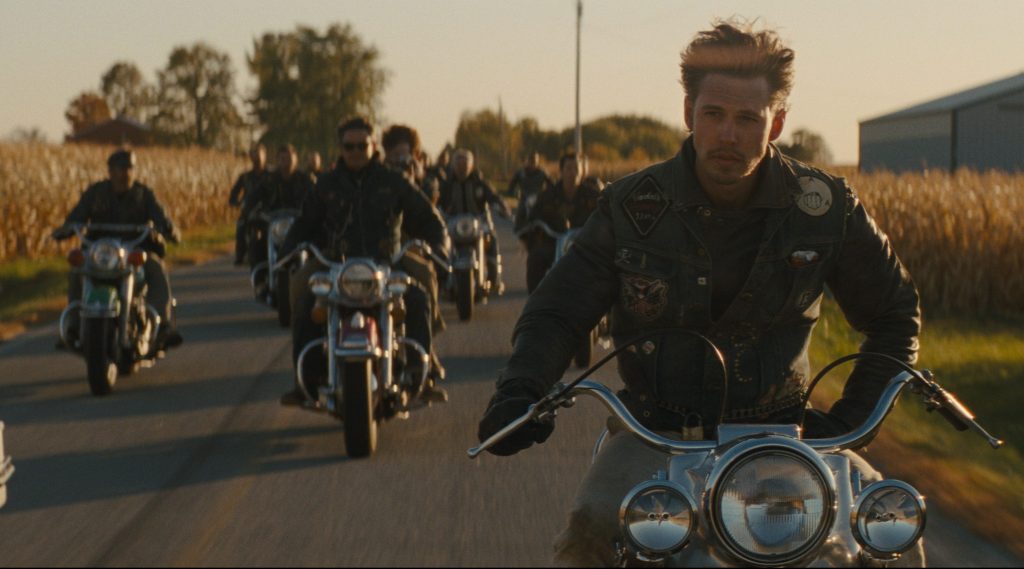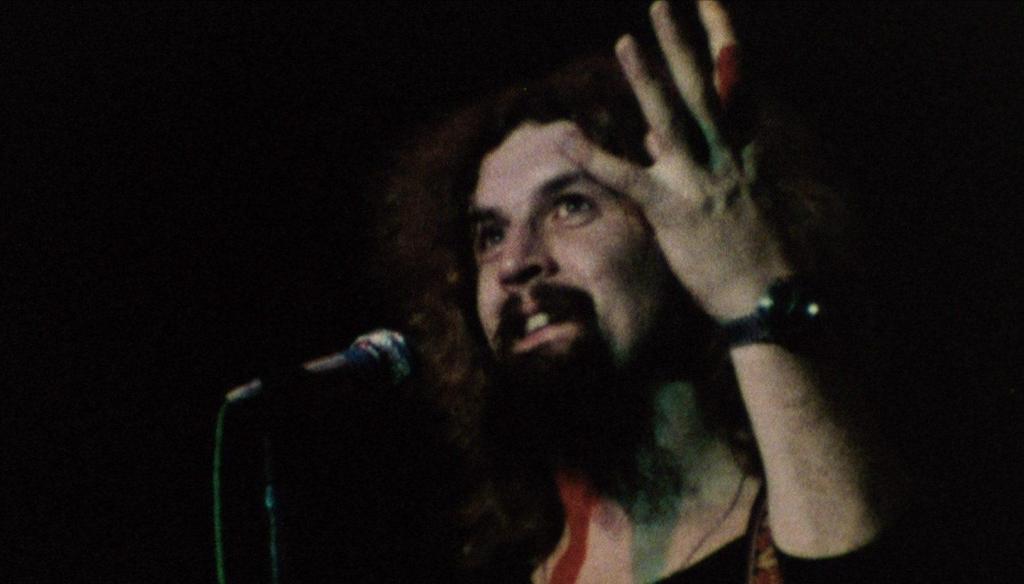One of the things we love most about Doctor Who is how, for all the science fiction concepts and alien worlds it throws at us, it still has the power to educate as well as entertain. This educational aspect has been an integral part of the show’s DNA since the very beginning, with the First Doctor and friends regularly visiting key moments from history and rubbing shoulders with figures like Marco Polo, King Richard and Maximilien Robespierre with not a monster or alien in sight. Demons of the Punjab may throw a couple of monster in to the mix, but for all intents and purposes, the episode is much more concerned with the period setting as opposed to the monsters and action.
Centering on a piece of history seldom touched in either Doctor Who or other popular media, the story this week takes us to India in 1947, to the very beginning of the Partition, a time of great political upheaval that saw the formation of Pakistan at the cost of millions of lives. Vinay Patel‘s script is chock full of historical facts and fascinating insights, all especially useful for this reviewer, who knew very little of what happened during this period. But where the script really shines is the more personal approach it takes to exploring these events, utilizing its characters to tell an informative and emotionally resonant story that is expertly woven into the setting.
Of all the episodes this season, Demons is easily one of the best in terms of pacing. Whilst by no means a kinetic, rip-roaring story, here the smaller character moments and the quieter, contemplative scenes drive the story on, as opposed to feeling like a sudden pause in the narrative. Patel creates an interesting set of characters here, with the relationship between radicalized Manish (Hamza Jeetooa) and his heroic brother Prem (Shane Zaza) a particular stand-out, whilst the alien Vajarians and the mystery behind their incursion is given plenty of depth and resonance.
It’s a tightly plotted and emotional story, offering a solid mix of science fiction and real-world history, resulting in an emotional final act that finally gives Mandip Gill the time to shine after five episodes with little to do. Her desire to meet her Grandma in her youth and the subsequent dilemma she faces when she learns history didn’t play out as she’d initially believed is beautifully played by Gill, whilst the subsequent exchange between Yasmin and Graham (Bradley Walsh) is lovely stuff indeed.
However, for all the episode’s brilliance, the central denouement of having the Doctor and her companions forced to let terrible events unfold to preserve history is somewhat lessened in power by the fact a similar conceit was used to greater effect just three episode prior in Rosa. The drama is compelling nonetheless, with solid performances from all concerned, tense direction from Jamie Childs and composer Segun Akinola‘s best musical score yet, but there is no escaping the nagging feeling that the episode’s power is somewhat diminished by the fact we’ve seen a similar beat play out much the same way just a few weeks ago.
Despite these reservations though, Demons of the Punjab is still a brilliant and timeless Doctor Who story, the kind which could easily have worked back in 1963 just as effectively as today. Light on monsters and scares, heavy with history and emotional depth, but still just as entertaining and enjoyable as any Who episode, it’s a fantastic insight into a part of history barely seen or discussed, as well as a powerful piece of drama that challenges audiences both young and old.
Doctor Who is back on BBC One next Sunday. Be sure to check out our Series Blog and join us for our verdict of Episode 7.










![The Cat And The Canary Blu-ray review: Dir. Paul Leni [Masters Of Cinema]](https://criticalpopcorn.com/wp-content/uploads/2024/04/image-5.png?w=1024)




![Crimson Peak Limited Edition 4K UHD review: Dir. Guillermo del Toro [Arrow Video]](https://criticalpopcorn.com/wp-content/uploads/2024/04/crimson-peak-4k-arrow-video-highdef-digest-full.jpg?w=1024)
Post your thoughts